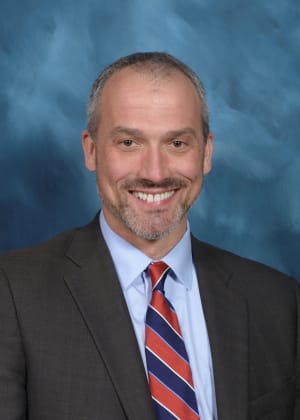Navigating PTSD

Post-Traumatic Stress Disorder (PTSD) Awareness Day is observed every year in June, but what is PTSD and how can someone with PTSD get the help they need?
PTSD can occur when someone experiences or witnesses a traumatic event. While it is often associated with military veterans, anyone can have PTSD. Different types of trauma are associated with varying risk for PTSD. For instance, sexual assault has the highest risk for developing PTSD.
PTSD has recently been in the news. Since the shooting in Newtown in 2012, Connecticut state lawmakers have debated for years about whether to provide police and firefighters suffering from PTSD with expanded workers’ compensation coverage.
When discussing PTSD, it is important to realize that not everyone reacts to trauma in the same way. Some people may develop PTSD symptoms, while others may not be affected. Regardless, it is said that as many as 70 percent of all Americans have experienced a traumatic event sufficient enough to cause PTSD or PTSD-like symptoms. Of that, 20 percent will develop PTSD symptoms.
What are the symptoms of PTSD and what can you do?

Non-specific symptoms of PTSD, or symptoms that may be related to other mental health issues, include irritability, depression and suicidal feelings. More specific problems can include repeatedly experiencing a traumatic event in the form of flashbacks, nightmares, persistent memories of the event and intrusive thoughts about the event. All symptoms can vary in intensity, can come and go and may be persistent over time. Anyone at any age can develop PTSD.
If you know someone who has gone through a traumatic event, Dr. Jeffrey Shelton, Middlesex Heath’s chair of Psychiatry, says it is important to remember they may not want to talk about the details of the event because it can be re-traumatizing. That doesn't mean that you should avoid that person. PTSD can be isolating. It is important to be present, listen and allow them to discuss the event at their own pace.
Some people experiencing PTSD may also turn to drugs and/or alcohol as a way of numbing the intensity of their feelings or coping with the trauma. It's very important that people who start to develop a substance use disorder seek treatment early to prevent the serious consequences of substance abuse. Simultaneously, this can help them recover from their trauma.
Encouraging someone to seek treatment from a mental health professional can be difficult because the person is going to be reluctant to discuss the event. Avoidance is one of the more prominent symptoms of PTSD. However, Dr. Shelton says if a person does trauma-informed treatment then it could make a big difference in helping them recover from their trauma.
Through Middlesex’s Center for Behavioral Health, you can find a psychiatrist who will help create a treatment plan and guide you as you strive to heal. To reach the Center for Behavioral Health, call 860-358-8825.

Jeffrey T. Shelton, MD
Specialties / Areas of Care
- LGBTQ+ Health
- Addiction Medicine
Locations
- Middletown, CT
860-358-8825
- View Full Profile
- Existing Patients Only
More Stories
Tips From The Mayer Center
In recognition of Autism Acceptance Month, Middlesex Health's The Mayer Center shares tips for parents of children who may be on the autism spectrum.
The Benefits of Acupuncture
Acupuncture, a form of integrative medicine, can ease pain and help with stress management. Acupuncture can also help if you are dealing with long COVID!